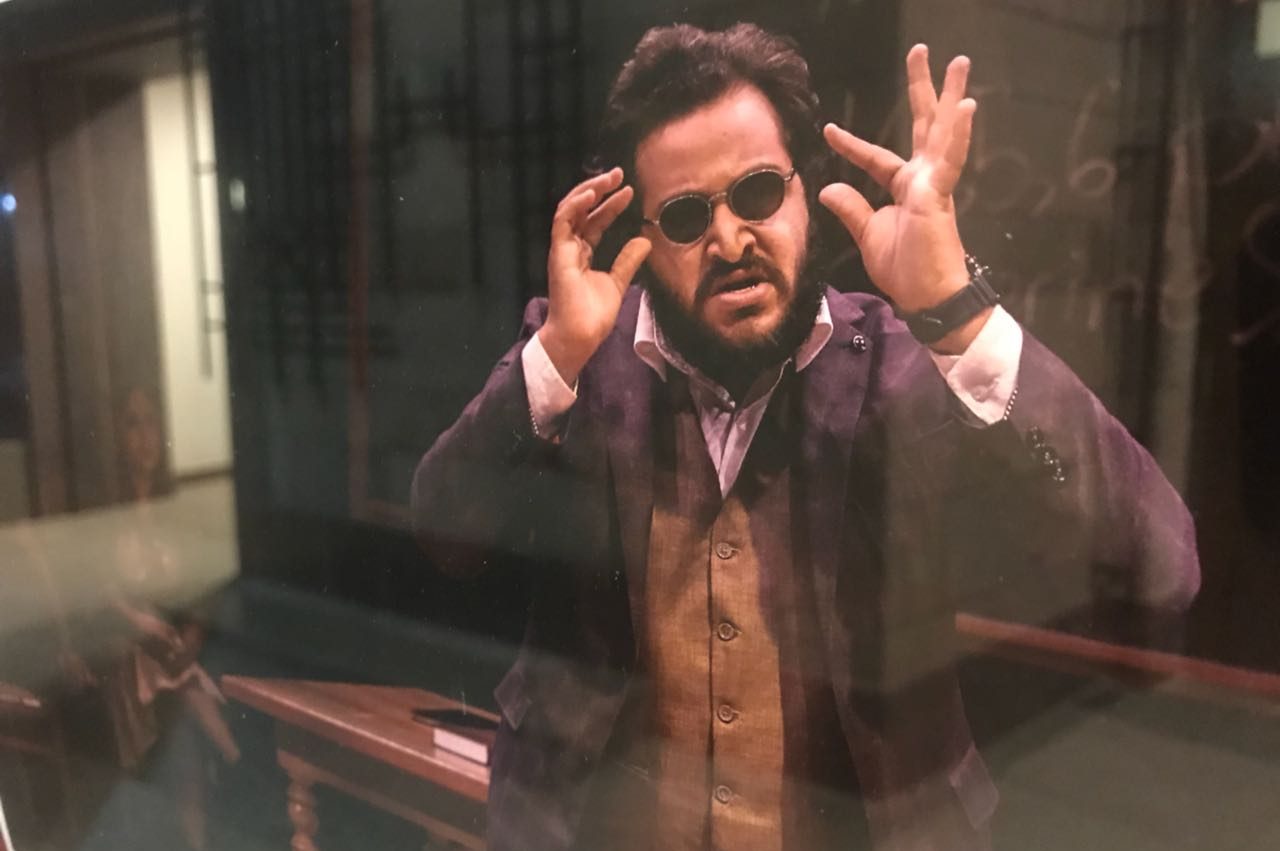By: Mahmoud Sherif
Follow @mahmouddsheriff
One might say that much of what we know about Isaac Newton is the derived from the story of the apple, which fell from the tree and hit him on his head.
This act of (mis)fortune would lead to what we now consider to be the theory of gravity.
But beyond this simplified version of history, there exist the struggles behind the discoveries.
In Isaac’s Eye, written by Lucas Hnath and performed at AUC’s Gerhart Theater starting October 25 to the end of the month, audiences were given a peek beneath the scientific veneer into a world of sex, drugs and fame that take an unsuspecting viewer by surprise.
Set in 17th century Woolesthorpe, England the play is a humorous historical drama, tampering with fact and fiction and modified with contemporary expletives.
Directed by Associate Professor and Director of the Theater Program Frank Bradley, the play’s cast includes Pola Kamel as the young and ambitious Newton and Ahmed El Hamzawy as his overbearing mentor Robert Hooke.
Yusif Najem excels as the tragic peasant and narrator, with Sarah El Shazly as Catherine Storer, the local apothecary and Newton’s admirer.
The play revolves around Newton’s aspiration of becoming a member of the Royal Society, one of the world’s oldest scientific academic institutions, where he hopes to immortalize his contribution to human history.
He enlists the aid of Hooke, a founding member of the Society and an expert in combustion and mechanical engineering.
Newton and Hooke agreed that they would test the former’s hypothesis that sticking a needle into one’s eye would allow them to see light particles, and if the experiment succeeds, then the mentor will do the best he can to make the young initiate a member of the Royal Society.
Hooke decides to recruit a sickly peasant loitering about as the lab rat for the experiment. He promises to heal the man of his illness on the condition that he agrees to the experiment.
The experiment eventually fails and the peasant is not only unable to see the particles but succumbs to his illness, due to Hooke’s negligence in treating him.
While Hooke is indeed interested in the theory of light, it soon becomes clear that there is an underlying jealousy because of how far Newton was advancing in their common research.
During his time with Newton, he tries to sabotage the young scientist’s work – and from then on, the drama unfolds; starting from Hooke’s sex diary that unveils his incestuous relationship with his niece to the love triangle that entangles Newton, his love interest Catherine, and Hooke together.
Kamel pulled off playing the eccentric genius in Newton, with complete disregard for morals or religious beliefs.
But it is El-Hamzawy who owned the stage with his astonishing portrayal of – more of an homage to – the drunk science master; his moves, his appearance, and the spot-on British accent. El-Hamzawy was able to bring new levels to the character, in a manner the audience celebrated.
Najem’s performance as the dying peasant and the narrator were both outstanding. He was effortlessly capable of turning everyone’s laughter to tears and giggles to sobs.
In a blink of an eye, Najem was able to master moments of both hilarity and tension.
“All I want before I die, is for someone to tell me: ‘I’m glad you lived’,” Najem’s heartbreaking monologue in Act 2 resonated in a way that was all too real, to the point that one can hear and see that the audience was sobbing.
Catherine, the 35-year-old apothecary infatuated with Newton is rebuffed and neglected, as her simple desires to get married and have children clash with Newton’s more lofty aspirations.
But El Shazly was able to transform Catherine’s character from that of a victim to a heroine, who comes to the fore when she finally confronted Isaac and left him all alone at the end.
And although the stage was quite small, the actors made the most of the space, moving from one end to the other when the scene demanded action and standing still, storing potentially explosive tension, when the drama heightened.
The minimalist set design focused the audience’s attention on the actors and allowed for their performance to hit the target.
